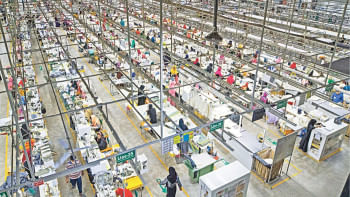The negative impact of fake news

Fake news spread during the presidential election of the United States caught global attention last year. The fake news went viral and shocked the public.
United States President Donald Trump's victory was even regarded as the outcome of fake news.
If fake news or rumours had an impact on the US presidential election, similar cases have also occurred in Malaysia.
Although the situation and magnitude of the cases are not comparable to the US, it is enough to show the abuse of fake news on internet.
Many are unable to identify authentic news and those with vested interests are exploiting the situation.
The creation and spread of fake news and hoaxes on the internet are money-oriented, politically-oriented or linked to other hidden agendas.
Tracing back the General Elections in 2013, when the opposition was seen as capable of winning, fake news and photographs went viral on the internet. The ruling party was accused of importing 40,000 foreign workers from Bangladesh to be voters. Many took it as genuine and even heeded the call made by non-governmental organisations on social media to arrest the phantom voters at polling stations.
Despite denials made by agencies such as the Election Commission, immigration authorities, police and national registration department, many voters still believed the fake news.
On polling day, voters who resembled foreign workers were cornered and questioned. Many were unable to defend themselves in such a situation. Although the "phantom voter arresting team" apologised later for wrong identification, the incident proved that fake news can have a far reaching impact.
Other fake news which went viral during the same election was a rumour that a power outage had occurred in the vote counting centre in Bentong parliamentary seat, as well as reports that a suspicious ballot box had been sent to the centre. Hence, the electoral result was seen as fabricated.
When Wong Tack, a candidate from the opposition party lost marginally to Liow Tiong Lai of MCA under the ruling party coalition, rumours went viral on social media. Although opposition leaders came forward to clarify that there was no blackout at the vote counting centre and no appearance of a suspicious ballot box at the 11th hour which overturned the electoral result, many voters still believed lights were switched off or there was some unseen transaction taking place after the election.
In the phone theft incident at Low Yat Plaza digital mall, the version of events circulated on social media stated that "after the suspect bought the hand phone, he realised that he was short changed and the dealer declined to change the hand phone for him. Clash took place after that."
Fanned by emotional posting, the incident almost turned into a racial conflict.
Gleaneagle Hospital in Kuala Lumpur also fell victim to a fake news story alleging that staff members released a "toxic fragrance" for a period of 16 years. Despite the hospital's repeated clarifications, someone is still spreading the news until today. The hospital is helpless.
Fake news and rumours continue to dominate cyberspace in Malaysia. Early this year an elderly Chinese lady was falsely accused of being part of a syndicate to kidnap children. After investigation and verification by the print media, the lady was identified as a regular at a shopping mall who was close to some of the staff in the shops. As newspapers reported the truth, the lady's name was cleared. However, the damage was done. The elderly lady was afraid of going out. She shied away from people, remaining at home throughout the entire Chinese New Year.
At present, fake news and rumours on social media are still hot, prompting the Najib administration to set up a portal called sebenarnya.my to combat the problem, as the authorities and personalities involved are having a tough time debunking false stories.
At the end of the day, our readers or netizens should have a better understanding of the media. The root cause of widespread of fake news is due to lack of understanding of media. The public is unable to identify fake news, or do not know how to verify or boycott it. To wipe out fake news one should start with education.
As media, Sin Chew Daily is also a victim of fake news and rumours. The paper shares the same feeling with thousands of people affected by fake news and rumours. Based on the urgency of the situation, we decided to start a special page called "seek the truth" on May 3rd in conjunction with World Press Freedom Day to counter fake news by tracing it. Readers would be guided to identify fake news.
We hope everyone will be a responsible internet user by not forwarding unconfirmed news from unidentified sources. Bring positive energy to society.
The author is a Leader Writer, Sin Chew Daily, Malaysia.
This is a series of columns on global affairs written by top editors and columnists from members of the Asia News Network.

 For all latest news, follow The Daily Star's Google News channel.
For all latest news, follow The Daily Star's Google News channel. 



Comments